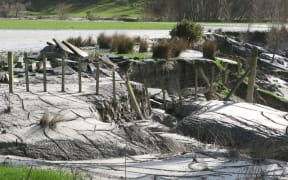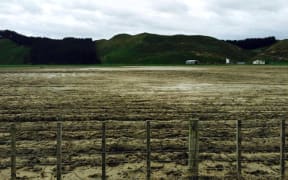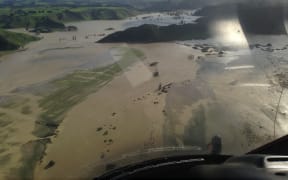A Taranaki hill country farmer believes it will take at least five years for his farm and production to recover from the June floods.
The Government has estimated the flooding in the western North Island in June will have an economic impact of more than $270 million.
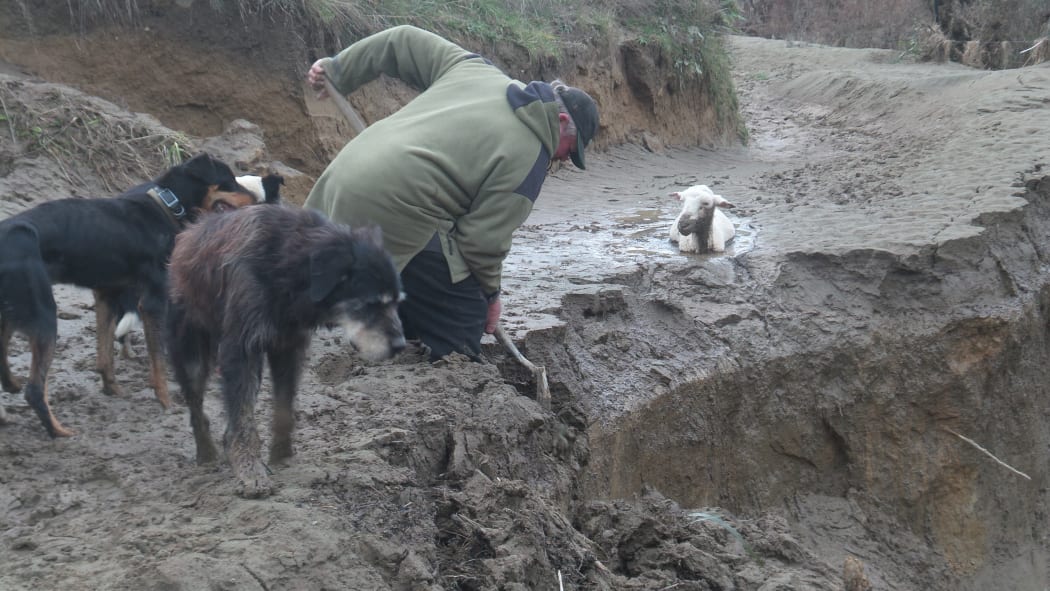
John McBride digging silt left by floods in late June. Photo: SUPPLIED / Philipa McBride
John and Philippa McBride farm in the eastern hills in Taranaki at Tututawa, where about a third of their property is out of action because of the floods.
The couple have 1500 ewes and 150 cattle, some of which are being kept on their neighbour's property. In late June, they received 280 mls of rain, and Mr McBride said the ground was still soaked.
Mr McBride said it would take years to fix the fences and re-cut tracks but he was hoping some of the government funding could would help.
"When we look out the back door there's a row of slips along the hill and every day there's a little bit of difference, the greenery is just coming through now. Every week makes a difference."
"It'll take five years for the slips to heal up really, they've gone right to the bone this time and it takes a while for the seed to latch on to some of the hard surfaces.
"I would predict most people will be still scratching their heads at least at year four, anyway. They'll have major infrastructure up and running, but the scarring will be there for many years to come. It is a long term thing this time."
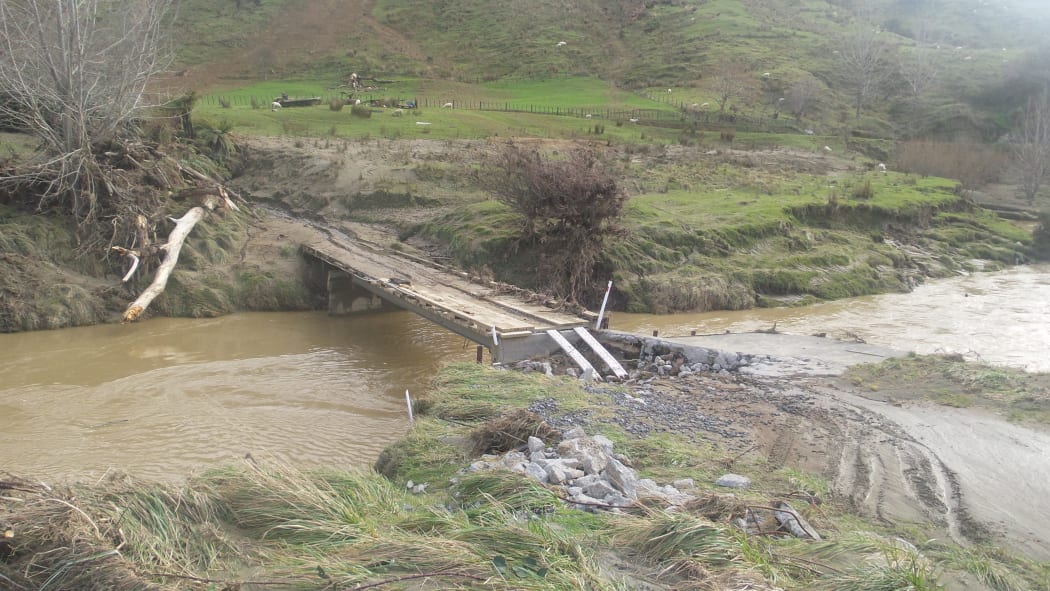
The flooding aftermath at the McBrides' farm. Photo: SUPPLIED / Philipa McBride
He said it had been a rough couple of months.
"Everybody is pretty devastated. The big thing is we've all go to learn to laugh again, you know it was pretty grim for a few days. I remember sitting on the hill on day four and thought, where the hell do we start?
"But once I found a start point, everything started to tick along. Hopefully the people out in the flatter areas appreciate that we in the hill country are just hurting a bit at the moment and the towns are going to be fairly hurt because the loss of stock and loss of production in the foreseeable future is going to be quite noticeable.
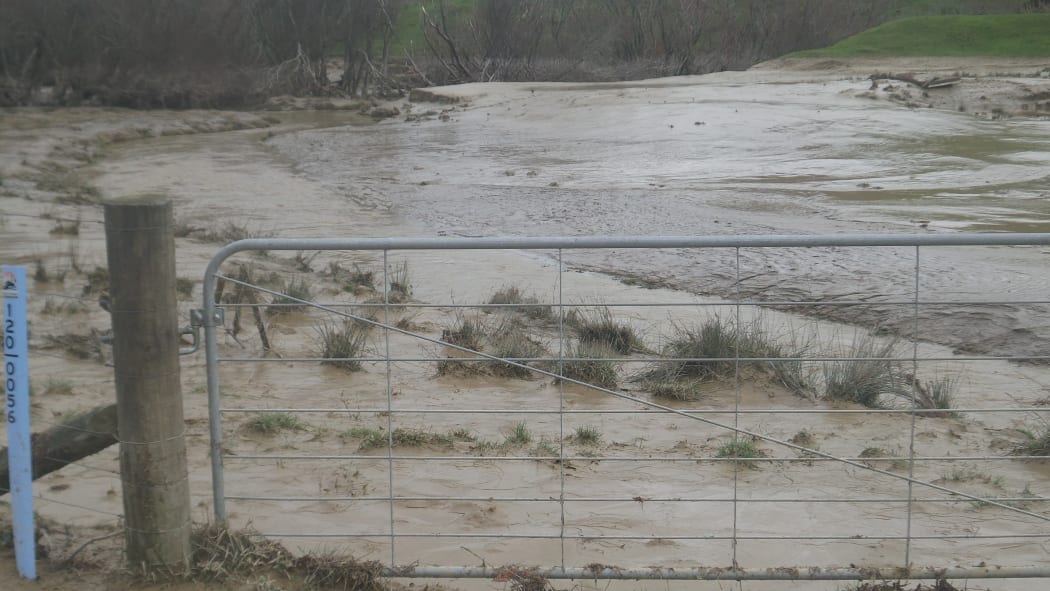
A third of the farm is out of action because of silt and slips. Photo: RNZ/Jemma Brackebush
"When you're having a beer at night just think of the boys out in the hills, they're not getting it too easy at the moment."
He said the support from the rural support trust had been great.
Paul Pederson, a farmer in the Whanganui region, said extra government funding had been a great help with the clean-up, and farmers were hoping they could just get on with things.
He has two farms in the wider Waitotara area, and said though there had been a lot of talk and surveys, farmers just needed practical help.
"Up until this point, there has been very little help. I'm not being too critical because there's been a lot of people with the best intentions.
"There's been rural support meetings and there's been people calling and assessing the damage, but farmers have now got to the stage, they're not really very interested in talk, they want action. They want money for grass seed, repairing track, repairing fences, that's what we need the real help for."
He said damage to both farms would be between $100,000 and $150,000, 20 percent of which would be covered by insurance.

